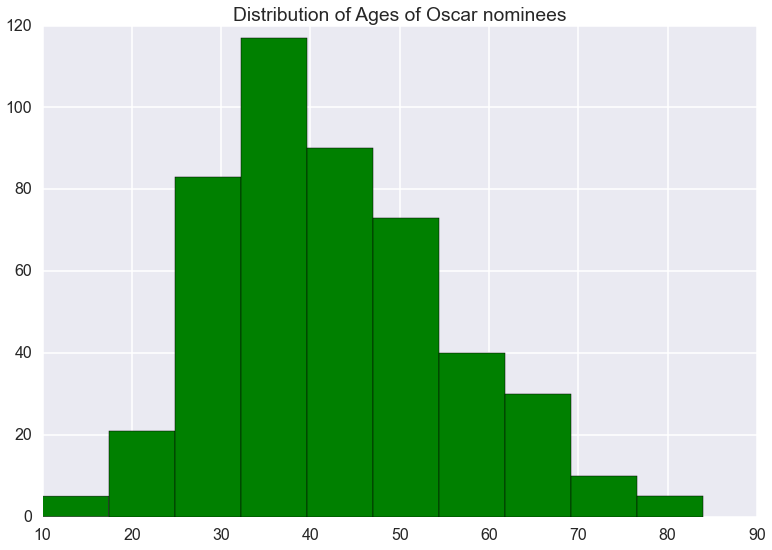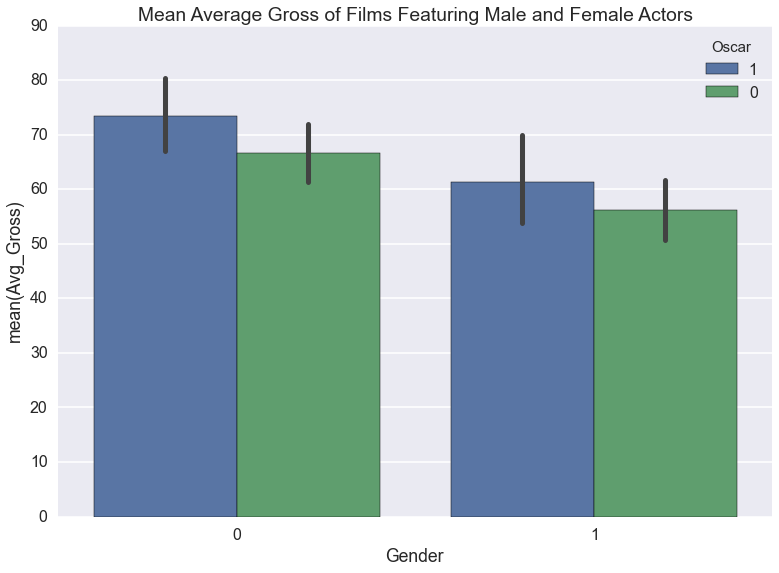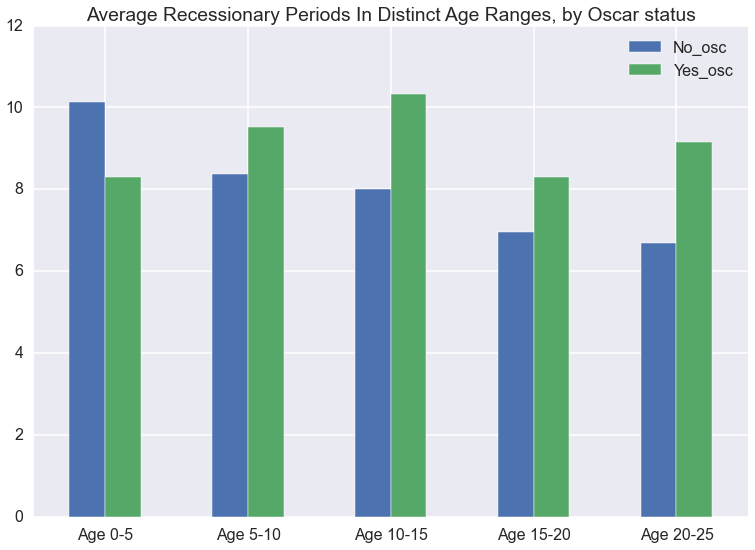Actors Analysis
My latest project at Metis sought to answer the following question: Do adverse economic conditions early in an actor’s life influence his/her relative success in the future?
Answer: Probably not.
Let me explain
(No time for explanations? Skip to slides below for the gist.)
Thanks to my scrupulous scraping efforts, documented in a previous blogpost, I ended up with a nice, clean dataset of 617 observations. These were 617 unique actors, all relatively successful in their field given that they appear on Box Office Mojo’s people index.
However, studies have shown that young people who come of age in a recession tend to have bleaker career prospects in the long-term. The Mothers of Aspiring Millennial Actors organization contacted me, worried. How true could this be in Hollywood?, they asked.
To find out, I created a model to measure how the economy in the past affected contemporary actors, and therefore have some sort of predictor for the millennials.
Building the model: success defined

I measured the actor’s level of success by one metric: the number of Oscar nominations received.
I began by trying to predict the average gross of films featuring said actor, but the results were miserable. None of the features collected about the actor correlated with this variable (ergo, movie success is determined by more than one actor!). Ideally, I could have used income of actors as a measure, but I didn’t find a reliable source of this data over time.
Building the model: adverse economic conditions defined
To determine the health of the economy during various points in the actor’s life, I used an NBER-based recession indicator. This dummy variable, measured monthly, assigns 1 to recessionary periods and 0 to expansionary periods. Using the actor’s birthday, I could calculate the number of recessionary months the actor was exposed to from ages 15-20 and 20-25. (Here I am making the assumption that a US recession hits the global economy, in the case of foreign-born actors.) This measurement helps control for age, in that I am measuring the same length of time for every actor, regardless of age.
Early findings: numbers behind the stars
The average age of (contemporary) Oscar nominees is 42.

Men and Oscar nominees have higher grossing films on average.

Oscar nominees endured MORE economic recessions on average.

Statistical findings: and the Oscar goes to…
Running an ordinary least squares regression reveals that while an actor’s starting age has no observable correlation with success, the length of their career does have a positive one. More surprisingly is that the number of months in economic recessions between ages 20-25 has a very slight, but positive, correlation with success. When the going gets tough…?
However, with an R-squared of only .25, we can confidently conclude that something other than the actor’s career length, gender, starting age, and the number of recessions in one’s early life is contributing to their success in the industry. My model as is cannot account for the variability.
Caveats
This dataset performed well for my purposes. However, accuracy in answering the initial question could be improved with the following:
- Expand sample to include mid-level actors
- Find salary information for actors, over time
- Use continuous economic indicators to capture intensity of recession
- Remove deseased actors from actors list (there are a few)
Final presentation
Here is the power point version presented to the Mothers of Aspiring Millennial Actors. They were pleased.
